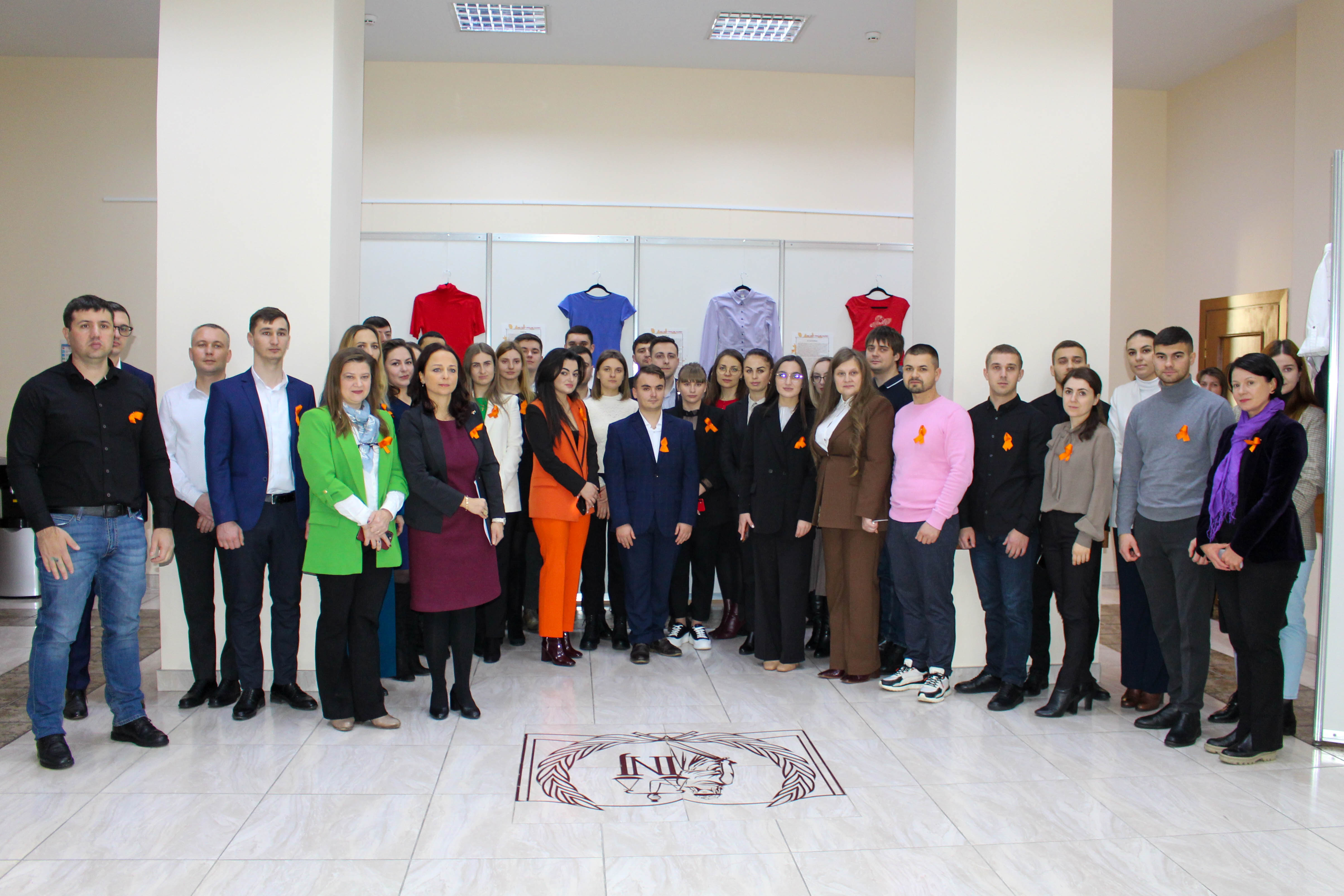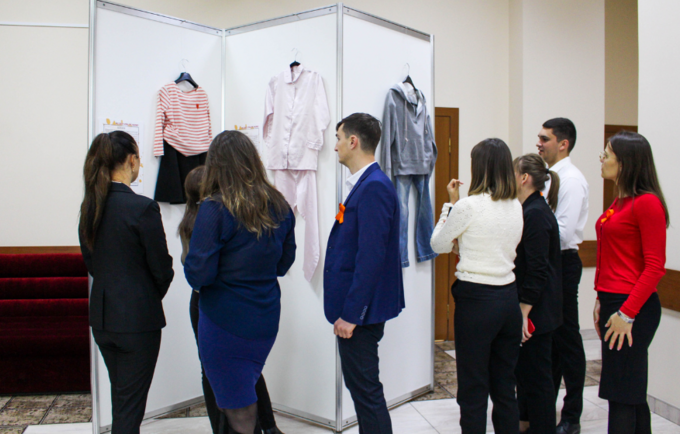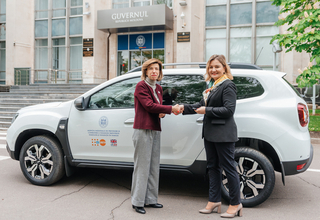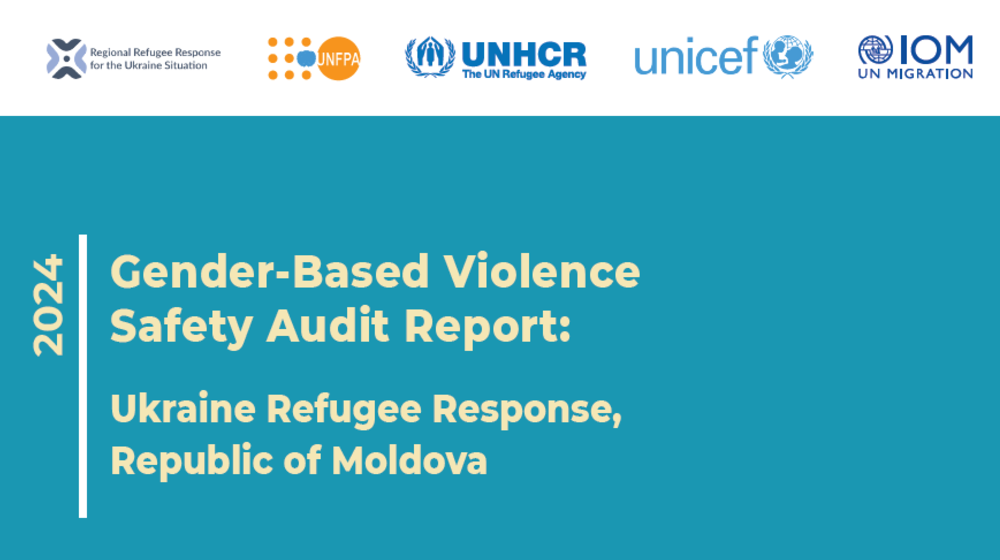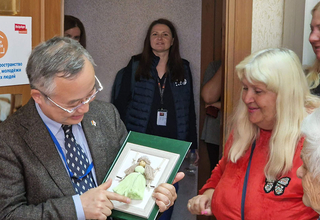The documentary exhibition with the generic title „Don't blame the clothes” presents the reconstructed clothes of nine women and teenage girls from the Republic of Moldova, at the time they were sexually abused or harassed. The exhibition set up in the premises of the National Institute of Justice (INJ) in partnership with the Women's Law Center (CDF) and in collaboration with UNFPA Moldova, draws attention to the stereotypes in our society, which hover around the phenomenon of sexual violence, with the aim of combating them.
„The IMAGES 2015 data showed that 42% of men and 26% of women believe that if a woman is raped, it means that she did something to end up in this situation. There are worrying figures that discourage victims from reporting abuse. Through CDF's activity, including such awareness events, we propose to bring change at the system level. When a policeman, a judge, or a prosecutor will apply the necessary protective measures according to the law, we will know that he/she not only changed the life of a woman, but also of her children, and the lives of hundreds of other survivors”, said Angelina Zaporojan-Pîrgari, executive director of the Women's Law Center, at the opening event.
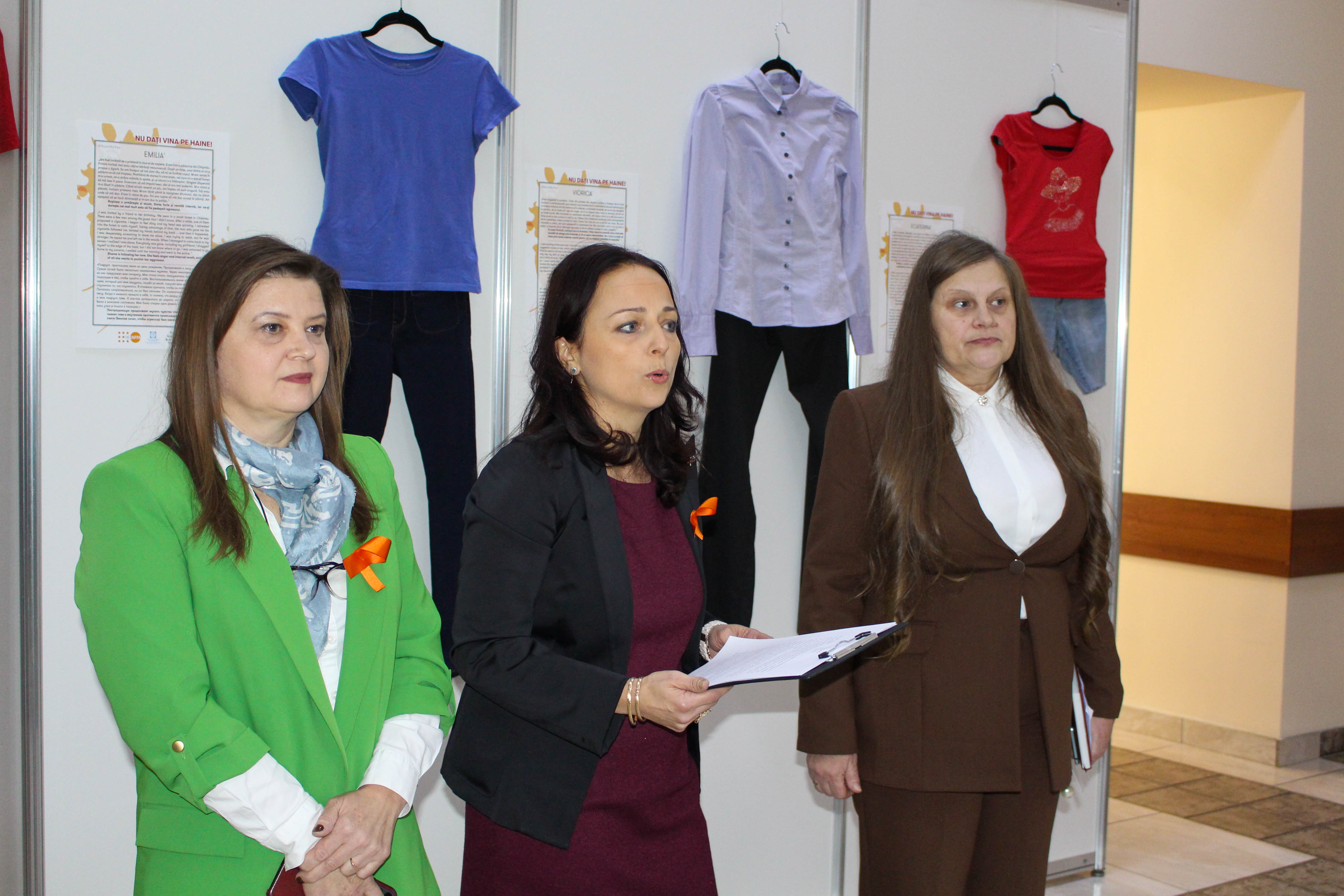
Iuliana's case, exhibited at the event, is representative. She was abused when she was only 15 years old, and the experience marked her entire life. She cut her long hair, started wearing only manly clothes and finds it difficult to build relationships: „My boyfriend still wants me to wear a dress, put on make-up or do my hair... I can't do this… that would mean being provocative. I do not want this! I will never make myself beautiful!”, said the young women in her story.
„Gender stereotypes are the basis of all forms of violence. If we talk about sexual violence, we blame clothes, if it is physical violence, women perceive it as a personal problem, not to mention the community, which blames everything on the woman. Unfortunately, we hardly realize the seriousness of the phenomenon, until we are personally affected, especially now, when we can see how the violence is also expanding in the online environment. In order for women to start reporting, services are needed and they need to trust the specialists who have the role of helping them, without victimizing them again”, said Violeta Terguță, Programme Analyst on GBV at UNFPA Moldova.
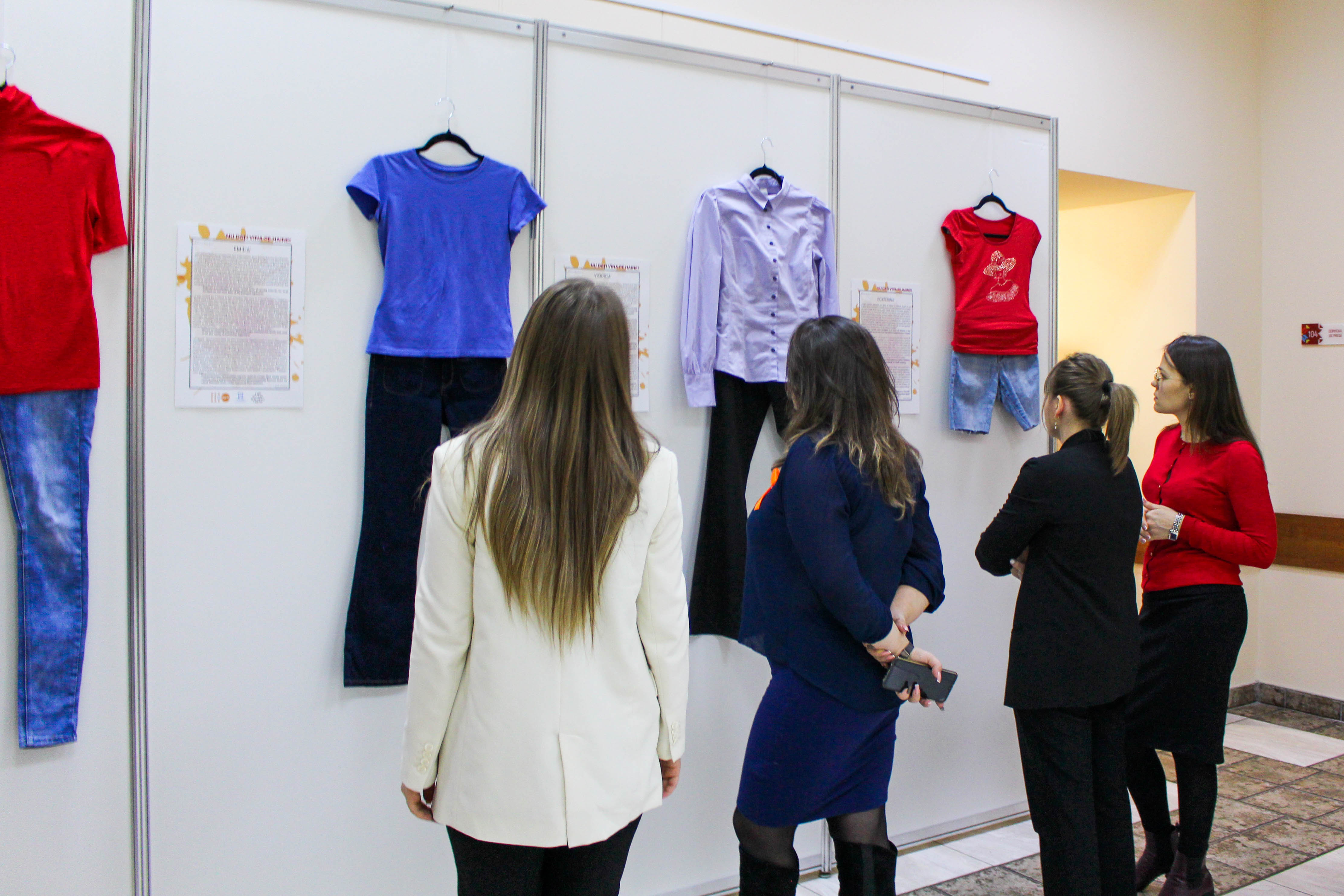
Sexual violence is the third most widespread form of violence among young girls in the Republic of Moldova and it leaves serious consequences on their lives. In 2022, the police registered 508 crimes that attack sexual life, of which 222 cases of rape and 282 cases of violent actions of a sexual nature.
„The National Institute of Justice is committed to providing quality judicial training, which involves not only activities according to the training plans, but also the involvement of future judges and prosecutors in extracurricular actions, including such awareness events. We are convinced that, by investing in education and realizing the existence of problems in this segment, we can have a future without violence”, stated Eugenia Graur, main specialist in the Education-Methodical and Trainer Formation Section, National Institute of Justice.
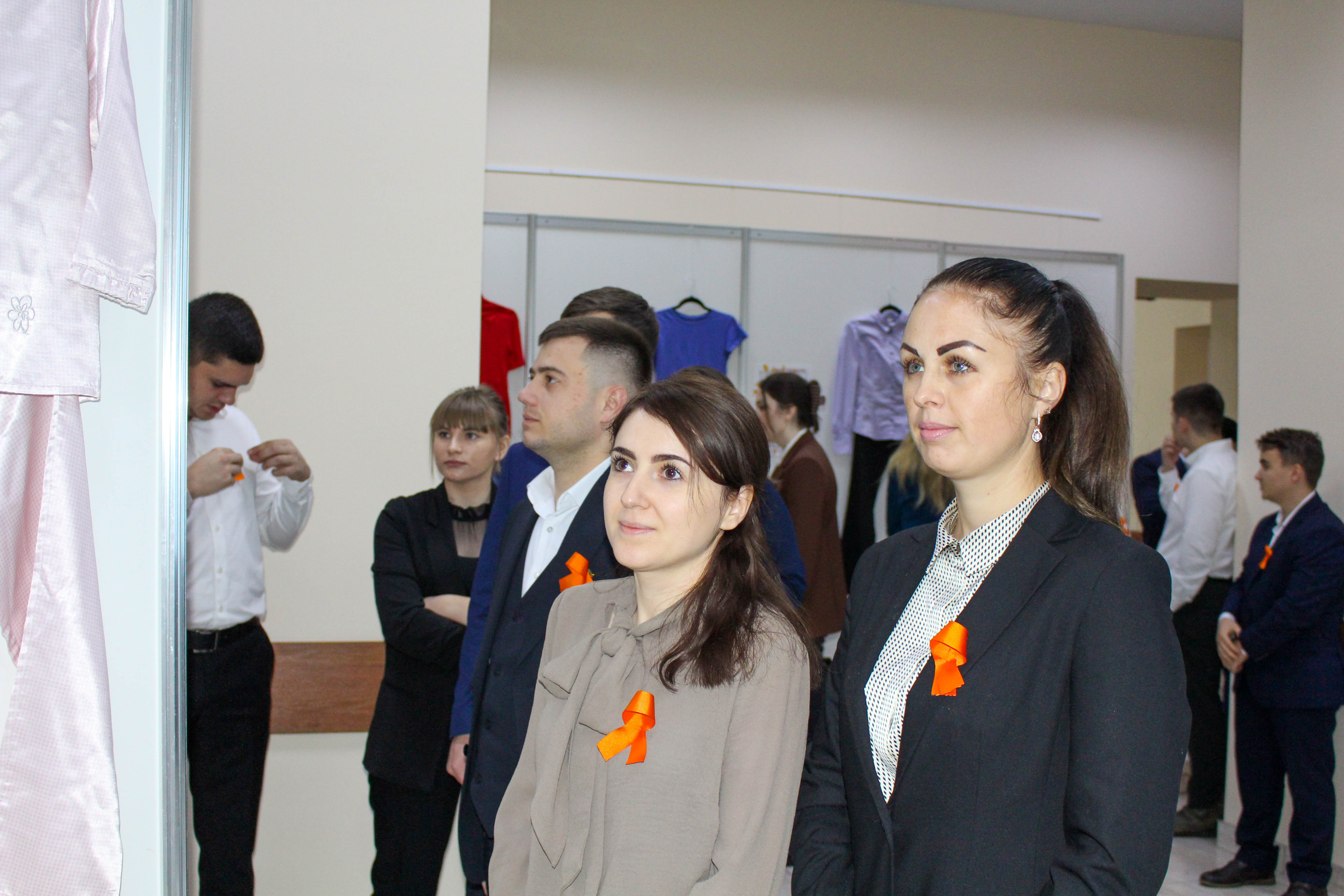
The launch of the exhibition was followed by a public lesson for the audience of the National Institute of Justice and students of the social assistance specialty (State University of Moldova), where together with CDF lawyer Arina Țurcan, myths and stereotypes regarding sexual violence were dismantled and measures by which we ensure protection of rights of GBV survivors were discussed.
The exhibition „Don't blame the clothes” can be visited in the premises of the National Institute of Justice (str. Serghei Lazo, 1) and is part of the series of actions within the „16 days of activism against gender-based violence” campaign.
The concept of the exhibition „Don't blame the clothes” comes from the University of Arkansas in the USA, being organized for the first time in Moldova in 2018, by the Women's Law Center, with the support of UNFPA Moldova, in collaboration with the International Center „La Strada”, Center for Assistance and Protection of Victims and Potential Victims of Trafficking of Human Beings and the State University of Moldova.
